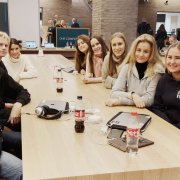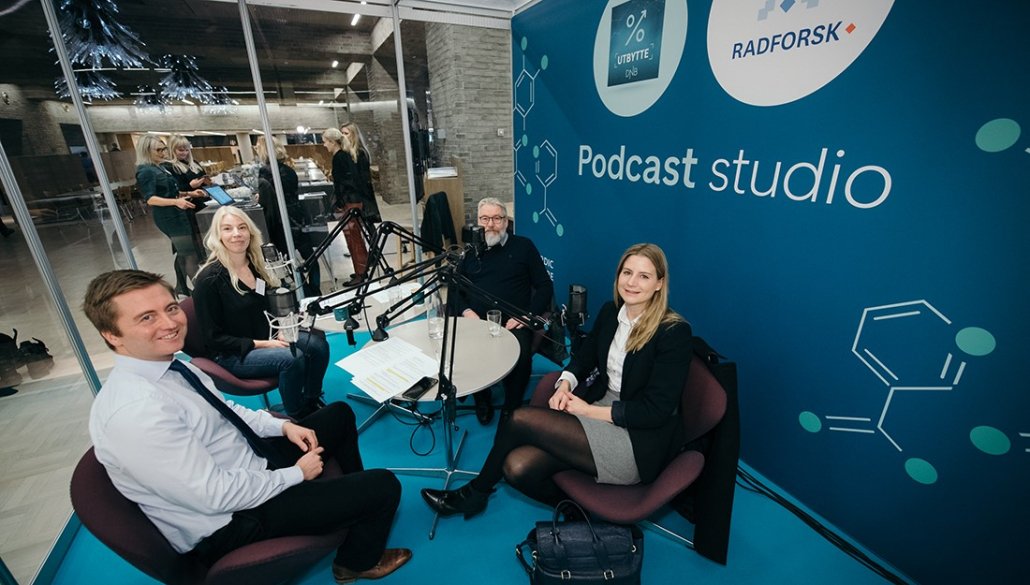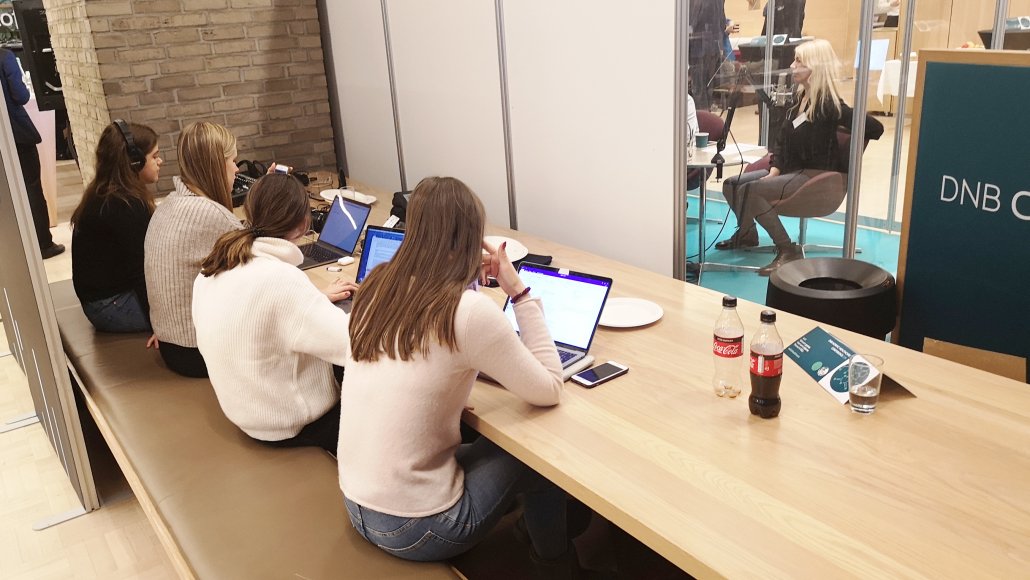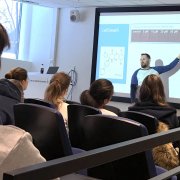Students helped create podcast
Our school collaboration project inspires science and health communication.
Ullern students were thrown head first into a live work environment this week. They gave technical assistance to the making of the podcasts Radium and Utbytte at the DNB Nordic Healthcare Conference 2019.
All the students are currently studying the media and communications program at Ullern Upper Secondary School, including a class on sound design. As an extra subject, they also started their own youth companies Marconi Media UB and Audio Mind UB.
Radium held a podcast marathon together with the DNB podcast Utbytte at this year’s conference, with six different sessions, interviewing CEOs and investors. Throughout the day, the Ullern students were expected to sound check, record, and edit the podcast – all on their own.
The students attended a planning meeting one week earlier. They also arrived the evening before to rig the set: a glass studio in the middle of the conference area.
“It is a really nice experience, because we are thrown into the real word and do things in practice,” Andrea Asbø Dietrichson from Marconi Media UB explained. “We have to do everything ourselves, even though we are beginners, but we are learning!”
“It has been interesting to hear what they are talking about (in the studio) and learn how it is to work during such a big event,” Theo Rellsve from Audio Mind UB added. “It is the largest event we have been to, with lots of people and things happening all the time. We are happy to take part!”
The aim of the school collaboration project between Ullern Upper Secondary School and Oslo Cancer Cluster is to inspire students to develop their talents. One aspect of the project is to give students a taste of what real working life is like.
“Personally, I would like to work in media,” Andrea said. “It is really inspiring to be here. Media and communications is a broad subject, but sound design is something not a lot of people know.”
“Audiomind has a clear vision about our future as a company. We are happy that we can get this experience and use it towards developing the company further,” Theo said. “… And create the best podcast recording company in Norway.”
Elisabeth Kirkeng Andersen, Communications Specialist for Radforsk and one of the persons behind the podcast Radium, was very satisfied with the work the students had performed. She gave them a top score.
“They have everything under complete control,” she said. “It is really fun to see their learning curve. They only studied sound design for a few months, but they have already helped at two live shows and they are always calm and service-minded.”
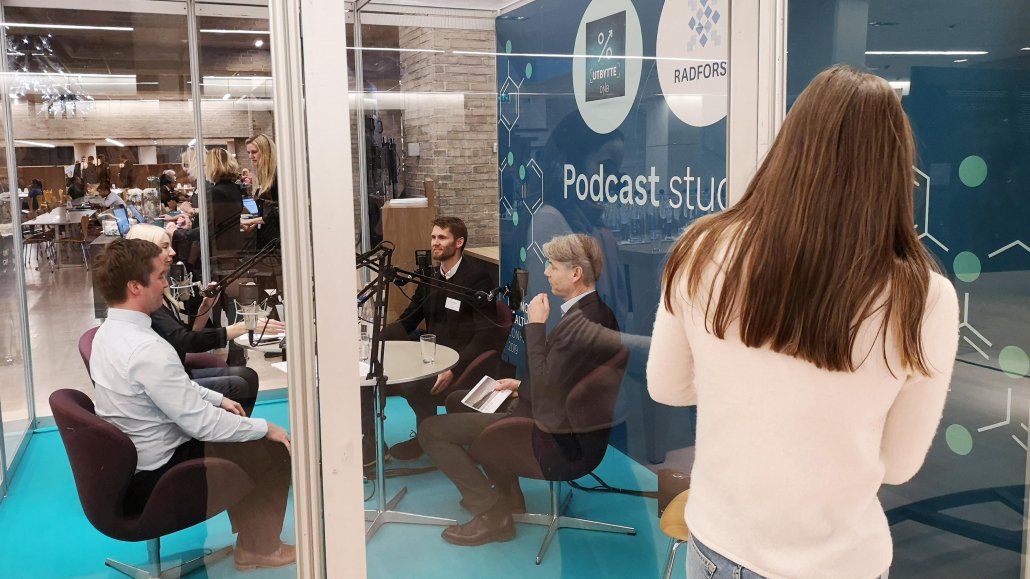
Elisabeth Kirkeng Andersen was impressed by how helpful and service-minded the students from Ullern were.
Want to find out more?
- You can listen to the episodes that were recorded either on the Radium podcast or on the DNB podcast.
- Read about the DNB Nordic Healthcare Conference on DNB’s website.
- Learn about the school collaboration project in Norwegian.

